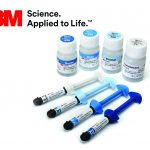The latest Care Quality Commission (CQC) State of Care report shows that dental services in England have topped the league in providing high quality care.
Of the 1,131 dental practices inspected in 2016/17, the CQC found that 88 per cent complied with the regulator’s five key tests: Are healthcare providers safe, effective, caring, responsive and well-led.
100 per cent of inspected practices met the tests for ‘caring’ and ‘responsive’ to their patients’ needs and preferences, while 99 per cent were found to be ‘effective’ in achieving good health outcomes; 96 per cent were found to be safe, and 89 per cent were considered to be well led.
Community dental services again lead the pack offering the highest quality of care of all the community services, with 88 per cent achieving a rating of good or outstanding, compared with 72 per cent for the other three core community services.
The CQC has been collecting data on primary healthcare services since 2011, and throughout the regulator has confirmed that dental practices, compared with other sectors, present a lower risk to patient safety.
In April 2015, this low risk prompted the CQC to move to a model of inspecting just 10% of all practices each year.
The BDA calls the report’s findings, “a remarkable achievement and a testament to hardworking and committed dentists, in spite of research showing that morale in the profession is at rock bottom. The challenges facing dentists, include a 35 per cent drop in earnings over the past 10 years, having to work within the constraints of a much-derided dental contract and without a penny of capital investment from government.”
A recent BDA survey revealed that over half (53 per cent) of young and newly qualified NHS dentists (aged under 35) intend on leaving the NHS in the next five years.
Mick Armstrong, Chair of the BDA, said:
“The latest CQC report represents another ringing endorsement for good practice in our profession, in spite of the huge challenges we face.
“Once again we see patients are at less risk when they visit their dentist than they are with most other healthcare professionals.
“Their teams have found dentists are providing low risk, high quality care, and where fault has been found practitioners have been willing to act quickly and solve problems. Does this really sound like the same profession that’s been asked to pay through the nose for the GDC’s services?
“Dedicated colleagues continue to provide a committed service, without a penny of government investment and in the face of an unprecedented collapse in earnings. Our patients deserve the highest quality care, and colleagues are having to subsidise it out of their own pockets.
“This ‘do more with less’ approach to health policy is not sustainable. Recruitment problems are already widespread and we now risk losing the next generation of NHS dentists entirely. The future of this service depends on sound strategy and effective investment. To date ministers have been unwilling to provide either.”
Key findings:
· Out of 1,131 dental care inspections conducted by the CQC:
o 100 per cent of practices were found to be caring, where staff involve and treat people with compassion, kindness, dignity and respect.
o 100 per cent responsive, where services are organised so that they meet people’s needs.
o 99 per centeffective, where care, treatment and support achieves good outcomes, promotes a good quality of life and is based on the best available evidence;
o 96 per cent safe, where people are protected from abuse and avoidable harm.
o 89 per cent well-led where leadership, management and governance of the organisation assures the delivery of high-quality person-centred care, supports learning and innovation, and promotes an open and fair culture.
· 998 (88 per cent) required no action, and just 22 (2%) required enforcement action.
· Community dental services were found to be offering the highest quality of care in the community services, 66 per cent of services rated as good and 22 per cent as outstanding.
















